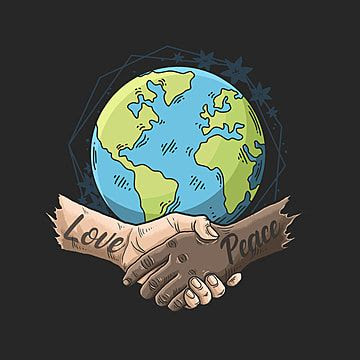Tolerance Transforms Communities
In a world filled with diversity, tolerance stands as a cornerstone for building strong and resilient communities. The ability to accept and embrace differences among individuals, whether they be cultural, religious, or ideological, fosters an environment of inclusivity and understanding. But tolerance goes beyond mere acceptance; it has the power to transform communities in profound ways. Let's delve into five powerful ways tolerance can shape and enrich the fabric of our societies.
1. Fostering Unity Amid Diversity
**Tolerance** acts as a bridge that connects people from various backgrounds and beliefs. When individuals practice tolerance, they acknowledge and respect each other's differences, leading to a sense of unity amidst diversity. Instead of focusing on divisions, communities united by tolerance celebrate their varied perspectives and experiences, fostering a culture of inclusivity and cooperation.
2. Promoting Peaceful Coexistence
**Tolerance** serves as a catalyst for peaceful coexistence within communities. By embracing diversity and promoting understanding, tolerance reduces the likelihood of conflicts rooted in prejudice or discrimination. When individuals learn to accept and appreciate one another, tensions diminish, paving the way for harmonious relationships and mutual respect.
3. Encouraging Innovation and Creativity
**Tolerance** nurtures an environment where creativity flourishes. When people from different backgrounds come together, they bring unique ideas, perspectives, and approaches to problem-solving. By embracing diverse viewpoints, communities can tap into a wealth of creativity and innovation, leading to groundbreaking discoveries, inventions, and artistic expressions.
4. Strengthening Social Cohesion
**Tolerance** strengthens the bonds that hold communities together. When individuals feel accepted and valued for who they are, they are more likely to actively participate in community life. Whether through volunteering, civic engagement, or social activities, tolerance fosters a sense of belonging and solidarity among community members, creating a cohesive and supportive social fabric.
5. Empowering Individuals and Groups
**Tolerance** empowers individuals and marginalized groups to thrive in society. When people feel accepted and respected, they are more likely to pursue their goals and aspirations with confidence. Tolerance dismantles barriers to success and opens doors of opportunity for everyone, regardless of their background or identity. By promoting equal rights and access to resources, tolerant communities empower all their members to reach their full potential.
In conclusion, tolerance is not merely a virtue; it is a transformative force that shapes the very essence of our communities. By embracing diversity, fostering understanding, and promoting inclusivity, tolerance has the power to unite, inspire, and uplift us all. As we strive to build a better world, let us remember the profound impact that tolerance can have on transforming our communities for the better.


0 Comments